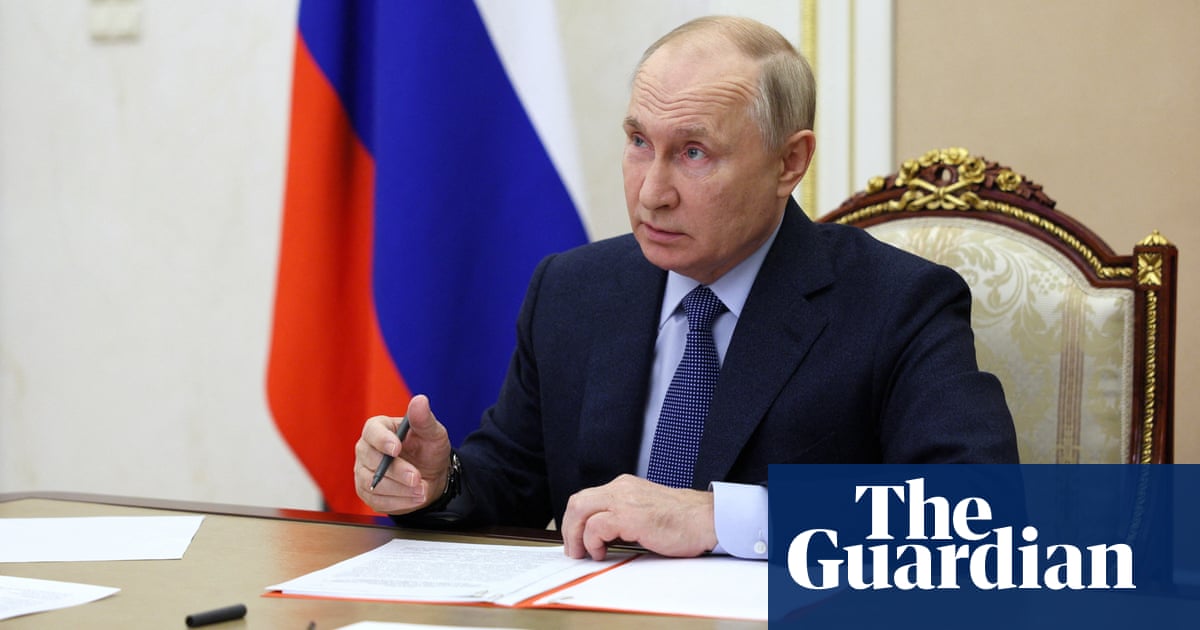
Russia has reportedly imposed additional currency controls in an attempt to prop up the falling rouble, restricting western companies that sell their Russian assets from taking the proceeds in dollars and euros.
International companies that want to exit Russia after its invasion of Ukraine have to sell their assets in roubles under new government restrictions, according to the Financial Times, which cited people familiar with the matter.
If they insist on receiving foreign currency for their assets, they face delays or even losses on the sums that can be transferred abroad, the FT reported.
The rouble has weakened since Moscow’s tanks rolled into Ukraine in February last year. The war prompted western countries to impose sanctions on Russia, hitting its currency and wider economy. The rouble has lost more than 20% of its value against the dollar this year, sliding past the psychologically important level of 100 roubles to the US currency in August.
It recovered after Russia raised interest rates and introduced export controls that month, but again crossed the 100 barrier in early October.
Russia’s central bank has increased interest rates four times since August to shore up the currency and bring down inflation, raising its interest rate more than expected to 15% on Friday. Earlier this month, Putin signed a decree forcing 43 companies to sell some of their foreign currency revenue in Russia. The rouble is now hovering at about 92 to the dollar.
The big international companies that have exited Russia or wound down their operations there since the invasion of Ukraine include Starbucks, McDonald’s, Shell, BP and Carlsberg. The Danish brewer said it had found a buyer for its Russian subsidiary, Baltika, in June but Vladimir Putin then ordered the temporary seizure of the stake.
Carlsberg’s new chief executive said on Tuesday that it would not enter any deal with Moscow that would make the seizure of the assets look legitimate.
“There is no way around the fact that they have stolen our business in Russia, and we are not going to help them make that look legitimate,” said Jacob Aarup-Andersen, who took over as Carlsberg’s CEO in September. Carlsberg had eight breweries and 8,400 staff in Russia, and took a 9.9bn Danish kroner write-down on Baltika last year.
Asked about the FT report on Tuesday, the Kremlin spokesperson Dmitry Peskov said demands that western companies leaving Russia receive payments in roubles were not linked to the currency’s recent gyrations.
Peskov said Russia remained open to external investment and was ready to create good business conditions for foreign companies.
He had told the FT it was the duty of every government to create “the most favourable conditions for its currency, so we create the most favourable conditions for the rouble”. He added that “the rouble has absolute priority” and Russia was guided by “its own interests and benefits”.
Moscow has blamed the rouble’s recent troubles on a drop in export volumes and growing internal demand for imports.
"control" - Google News
November 01, 2023 at 12:39AM
https://ift.tt/NmhfbQP
Russia has tightened capital controls to help prop up rouble, report says - The Guardian
"control" - Google News
https://ift.tt/f3acNu0
https://ift.tt/4wEzhir
Bagikan Berita Ini














0 Response to "Russia has tightened capital controls to help prop up rouble, report says - The Guardian"
Post a Comment